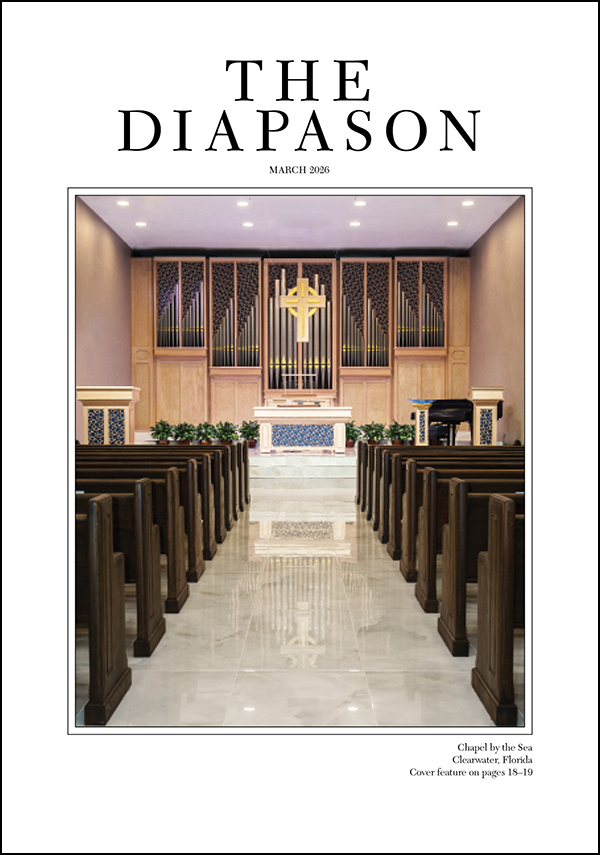
Frederick B. Hyde, emeritus professor from the Department of
Music, University of Alabama, died on March 7, 2001. Fred, whom I came to know at
several American Guild of Organists national conventions, was a contributor to
the William Dowd 70th birthday tribute issue of The Diapason (February 1992).
After that issue had gone to press, Dr. Hyde sent me an
additional story, with this note:
"Northport, AL, January 2, 1992: Enclosed is a
contribution to the 'True Stories about William Dowd.' It may not be on the
level of what you want to include in the issue, and it may, of course, be too
late for you to use. . . . The
reminiscences are true 'to the best of my knowledge.' They stand out in my
memory as pertinent--and interesting, possibly items that might not have come
your way through other avenues."
As a tribute to this gentle and good early advocate (and
purchaser) of historically-informed instruments from a builder of the
mid-20th-century Boston School, here is Fred's previously-unpublished
remembrance.
Frederick Hyde: A patriotic reminiscence
I suppose all who have made the decision to buy a
harpsichord have shared the feelings I had. Buying one from Hubbard and Dowd
led me to visit their workshop as soon as I was in Boston. How could one forget
the mystery of entering what seemed like a holy-of-holies in the original
Tremont Street location, making one's way, as one crossing the Styx and entering
Hades, past the Harpoot restaurant on the ground floor with its enticing
mid-Eastern fragrances almost arresting one's ascent to the shop on an upper
floor. (I learned from Bill [Dowd] later that the proprietor of this restaurant
was a philanthropist in his own right, maintaining a haven of hospitality for
his bewildered countrymen newly arrived in a forbidding land.)
Then there was the place at 26 Church Street, back of the
Unitarian Church in Cambridge and a short distance from Harvard. My Kirkman [-style
harpsichord] was made there by Bill Dowd. (Frank Hubbard was in Europe
preparing to write his epoch-making book.)
The next location where I felt at ease was in East
Cambridge, 25 Thorndike Street, where so many immortal Dowd harpsichords were
built. It was there that Bill had a "showroom," in which a number of
harpsichords--two or more--were displayed at a time, tuned and ready to be
played. It was there that I remember hearing words to the effect that one more
performance of Bach's Italian Concerto would not make the staff rejoice!
Bill Dowd's musical background is extensive. His love of
Beethoven is surely well-known. I remember a conversation with him in which I
was taking the stand that only early Beethoven could be played on a harpsichord
with any success. "Oh, I don't know," said Bill, not to be outdone,
and he set a registration and started the theme of the variations of Opus 111!
One recollection I have of the harpsichord showroom stands
out in my memory. It turns out that in this extensive musical background of
his, Bill had played some instrument in the band at one of his schools. He had
played, along with other things, numerous marches by the March King, John
Phillip Sousa; and he remembered them in their entirety. I know some of them,
too; and I imagine few have shared my experience of sitting at a Dowd
harpsichord, with Bill at another, putting on a fairly convincing rendition of
Sousa marches, extemporized under the inspiration of the moment, on two Dowd
harpsichords!
For the more fastidious aficionados this might seem a
desecration of a hallowed instrument, which should be reserved for 18th-century
claveçin composers at the latest. But I say, who is more qualified to
play Sousa marches on these instruments than the builder himself?

